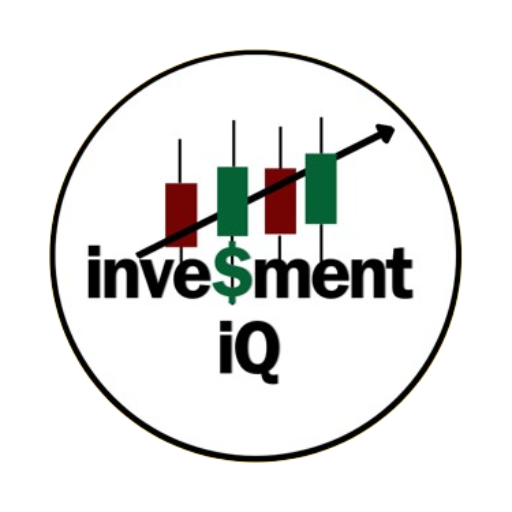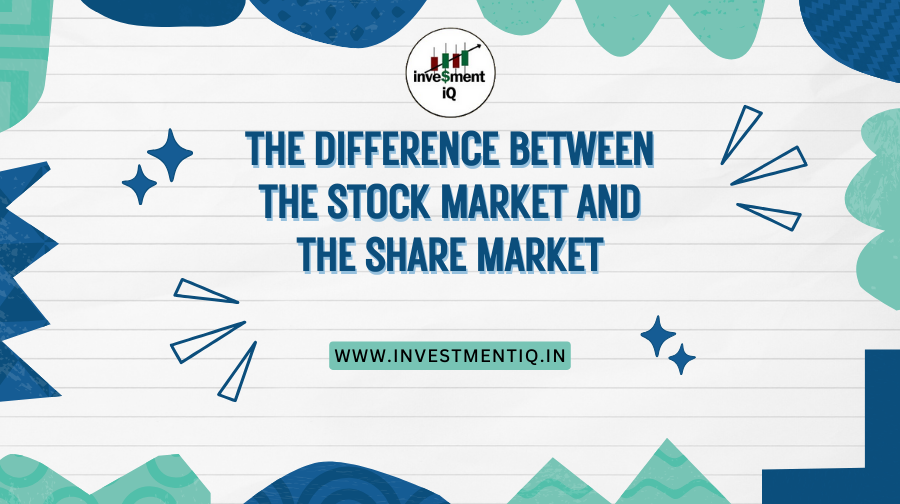The investing world can be confusing, especially when it comes to the terminology around stocks and shares. Many people use the terms ‘Difference Between the Stock Market and the Share Market interchangeably, but there are actually some key differences between the two.
At their core, both the stock market and the share market refer to the trading of ownership in publicly-listed companies. However, the nuances between stocks and shares, and the markets they trade in, are important for investors to understand.
What is the Stock Market?
The stock market is a broad term that refers to the collection of exchanges and over-the-counter markets where the trading of company stocks, bonds, and other financial instruments takes place. The most well-known stock exchanges are the New York Stock Exchange (NYSE) and the Nasdaq in the United States, as well as the London Stock Exchange (LSE) in the UK.
When people talk about “the stock market,” they are generally referring to the overall performance and trading activity across these major exchanges. The stock market allows public companies to list their stocks, which can then be bought and sold by investors. The prices of these stocks fluctuate based on supply and demand, as well as a variety of economic and company-specific factors.
Investors can buy and sell stocks on the stock market with the goal of profiting from changes in the stock prices. Stocks represent partial ownership in a company, so stockholders can also earn dividends if the company chooses to distribute profits to shareholders.
The stock market is a crucial part of the broader financial system, as it allows companies to raise capital by selling stocks to the public. This capital can then be used to fund growth, research and development, acquisitions, and other business initiatives. The stock market also provides a way for investors to participate in the success of public companies and build wealth over the long term.
What is the Share Market?
The share market, on the other hand, is a more specific term that refers to the trading of company shares on a stock exchange. A share is a unit of ownership in a publicly-traded company. When you buy a company’s shares, you become a shareholder and own a fractional piece of that business.
The share market is where these company shares are bought and sold. It is the platform that facilitates the trading of these ownership stakes between investors. The prices of the shares fluctuate based on factors like the company’s financial performance, investor sentiment, and broader economic conditions.
Investors can profit from the share market by buying shares at a low price and selling them at a higher price in the future. Shareholders may also receive dividend payments if the company chooses to distribute a portion of its profits to its owners.
The share market is a crucial component of the overall stock market, as it allows public companies to raise funds by issuing and selling shares to investors. This capital injection can then be used to finance the company’s growth and expansion plans.
Key Differences Between the Stock Market and the Share Market
While the stock market and the share market are closely related, there are some important distinctions between the two:
- Scope: The stock market is a broader term that encompasses the trading of various financial instruments, including stocks, bonds, derivatives, and other securities. The share market, on the other hand, is specifically focused on the trading of company shares.
- Instruments Traded: The stock market allows the trading of a wide range of financial instruments, such as stocks, bonds, mutual funds, and exchange-traded funds (ETFs). The share market, in contrast, is limited to the trading of company shares.
- Ownership Structure: Stocks represent partial ownership in one or more companies, while shares refer to a specific unit of ownership in a single company. When you buy stocks, you become a shareholder in multiple companies, but when you buy shares, you own a piece of a single company.
- Denomination: Stocks can be purchased in varying denominations, depending on the investor’s preference and financial capacity. Shares, on the other hand, have a fixed nominal value assigned by the company when they are issued.
- Paid-up Value: Stocks can have different paid-up values, meaning the amount that has been paid by the investor for the stock. Shares, however, are always fully paid-up when issued.
- Listing: Companies can list their stocks on multiple stock exchanges, but they can only list their shares on a single stock exchange.
- Regulation: Both the stock market and the share market are subject to regulatory oversight, but the specific rules and regulations may vary between different jurisdictions and exchanges.
The Importance of the Stock Market and the Share Market
Both the stock market and the share market play crucial roles in the broader financial system and the economy as a whole:
- Capital Raising: The stock market and the share market provide a platform for companies to raise capital by issuing and selling their shares to the public. This capital can then be used to fund business expansion, research and development, and other growth initiatives.
- Wealth Creation: Investors can participate in the growth and success of public companies by buying and selling stocks and shares. This can lead to capital appreciation and dividend income, which can help individuals build wealth over the long term.
- Economic Barometer: The performance of the stock market and the share market is often seen as a barometer of the overall health of the economy. Changes in stock and share prices can reflect broader economic trends and investor sentiment.
- Transparency and Accountability: Publicly-traded companies are required to disclose financial information and adhere to regulatory guidelines, which promotes transparency and accountability in corporate governance.
- Liquidity: The stock market and the share market provide a highly liquid environment where investors can buy and sell their holdings relatively easily, which is an important factor for many investors.
In conclusion, while the stock market and the share market are closely related, it is important for investors to understand the nuances between the two. By recognizing the differences and the unique characteristics of each market, investors can make more informed decisions and better navigate the complex world of investing.




